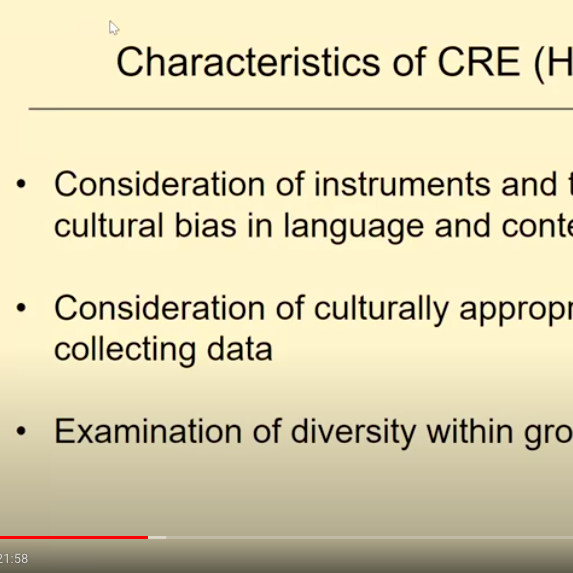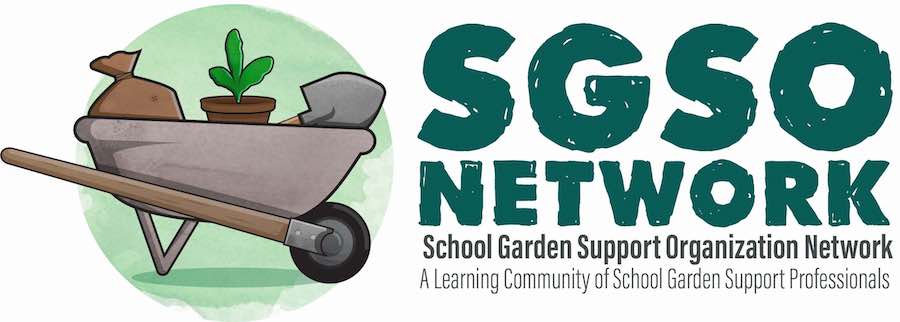Culturally Responsive Evaluation (CRE) In this clip, Dr. Wheaton explains that Culturally Responsive Evaluation is more of a holistic approach to evaluation, rather than a prescribed template. “Culturally responsive evaluation (CRE) is an evaluation approach that places culture and the community of focus at the center of the evaluation, helps to support community empowerment, and has a goal of social justice” (p2). McBride, D. (2018) “CRE is a holistic framework for centering evaluation in culture (Frierson, Hood, Hughes, and Thomas, 2010). It rejects culture-free evaluation and recognizes that culturally defined values and beliefs lie at the heart of any evaluative effort” (p282). Hood, S., Hopson, R.K., & Kirkhart, K.E. (2015) |

